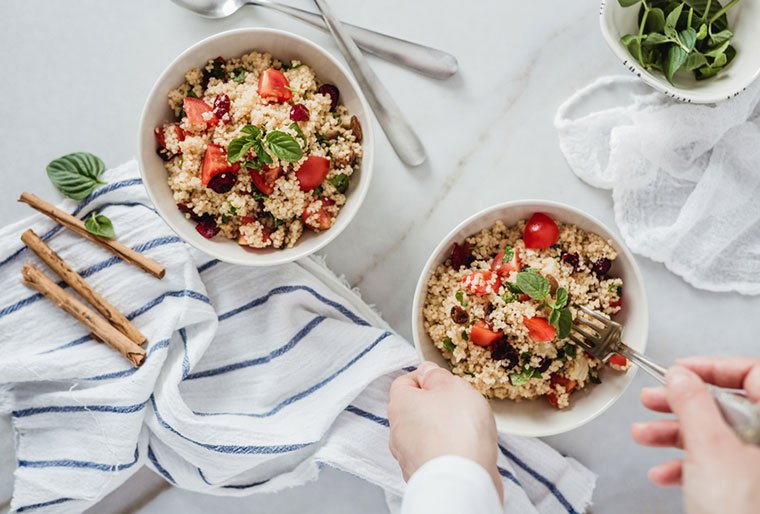"Eat your fruits and vegetables" was likely the first nutrition rule you learned. And from the carrots packed in your kindergarten lunch box to the green smoothie you now consume on the daily, fiber has always been an important part of your diet (the most important part—especially for gut health—some might argue).
“Fiber is key for proper digestion and supports a healthy balance of gut bacteria,” says Frank Lipman, MD, bestselling author and the founder of Be Well. "It assists in the elimination of metabolic waste and toxins, and helps create regular bowel movements.” Not only does fiber keep your digestive system operating at peak performance, it can also aid in weight loss, help stave off heart disease, and keep your blood sugar in check.
So yeah, it's pretty important. But if you're downing fiber at every meal, is it possible to have too much of the good thing?
Keep reading for Dr. Lipman's fiber recommendations.

Can you have too much fiber?
The recommended daily fiber intake for women is 25 grams, according to the American Heart Association—and this should come from whole foods, not supplements. "If you're eating a variety of nutrient-dense vegetables and some low-sugar fruits, then you're probably consuming enough fiber,” Dr. Lipman says. “We recommend sticking to fibrous foods that come from nature rather then processed and packaged ones. This means choosing real food opposed to packaged foods that are advertised as high in fiber.”

{{post.sponsorText}}
Some of Dr. Lipman's favorite high-fiber foods include fermented and cruciferous vegetables (like broccoli, cauliflower, and cabbage), leafy greens, nuts, and seeds. Beans, lentils, and legumes are also fiber heroes, but they may cause some digestive issues (beans, beans the magical fruit… you know the drill).
How do you know you've gone too far? You'd need to ingest over 70 grams to experience the unpleasant symptoms that too much fiber can bring on (namely, GI distress like bloating, constipation, or diarrhea). Considering the average person only gets about 15 grams of fiber a day, you'd probably have to try pretty hard to go overboard.
"If you're sticking to wholesome, healthy foods, there shouldn't be concern for health risks related to fiber intake," Dr. Lipman says. (But if you are experiencing issues, you should absolutely talk to your doctor about the right amount of fiber for you.)
"It's not a one-size-fits-all approach, so personal, safe experimentation with diet is ideal," Dr. Lipman adds. "Read your food labels and nutrition facts, know how much fiber is in your meal, and try slowly increasing and seeing how your body responds." Your gut will thank you.
Want some ideas on how to integrate those "wholesome, healthy foods" into your diet? Try some of these uber-fibrous foods, or these fiber-packed recipes.
Loading More Posts...